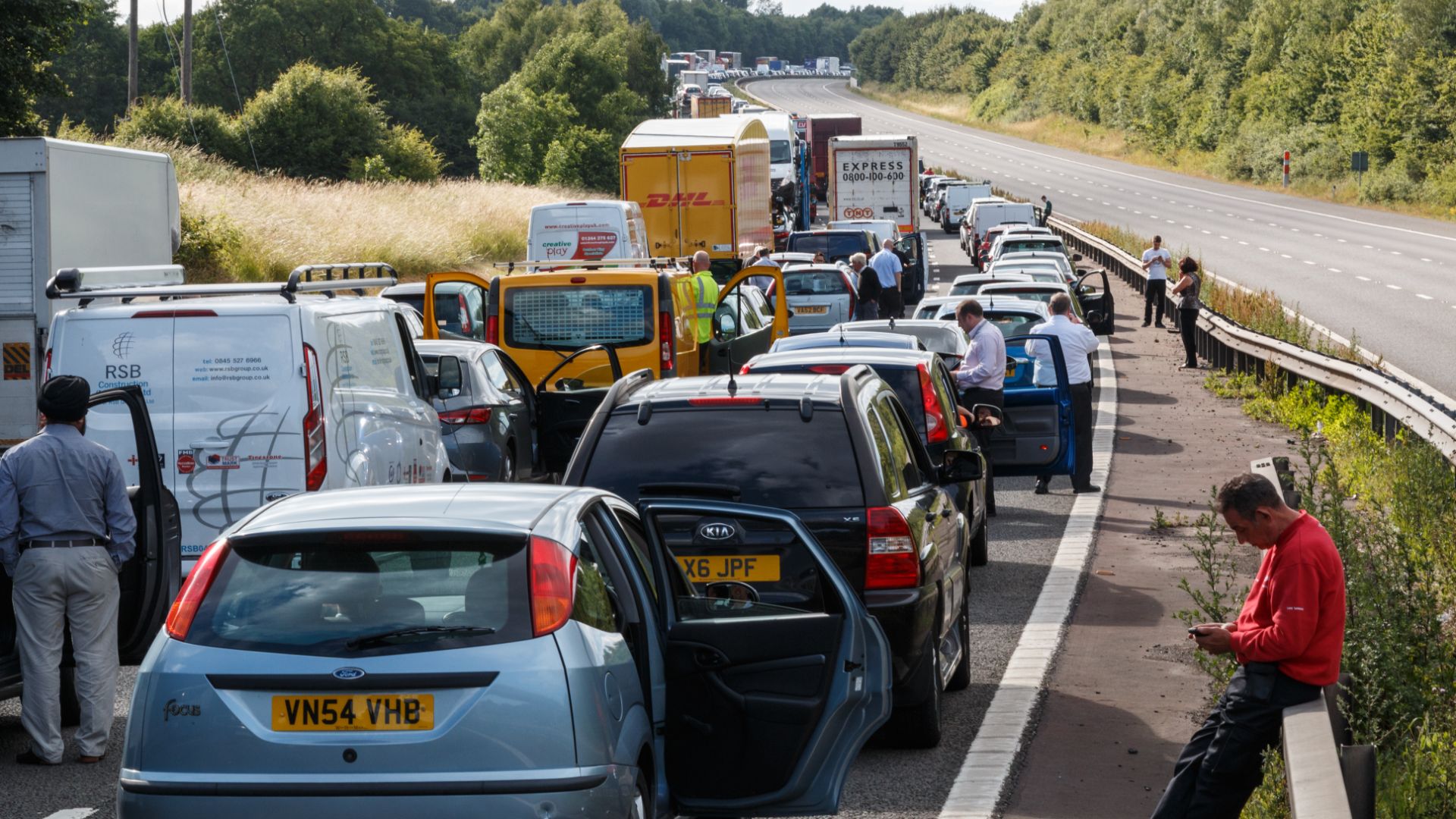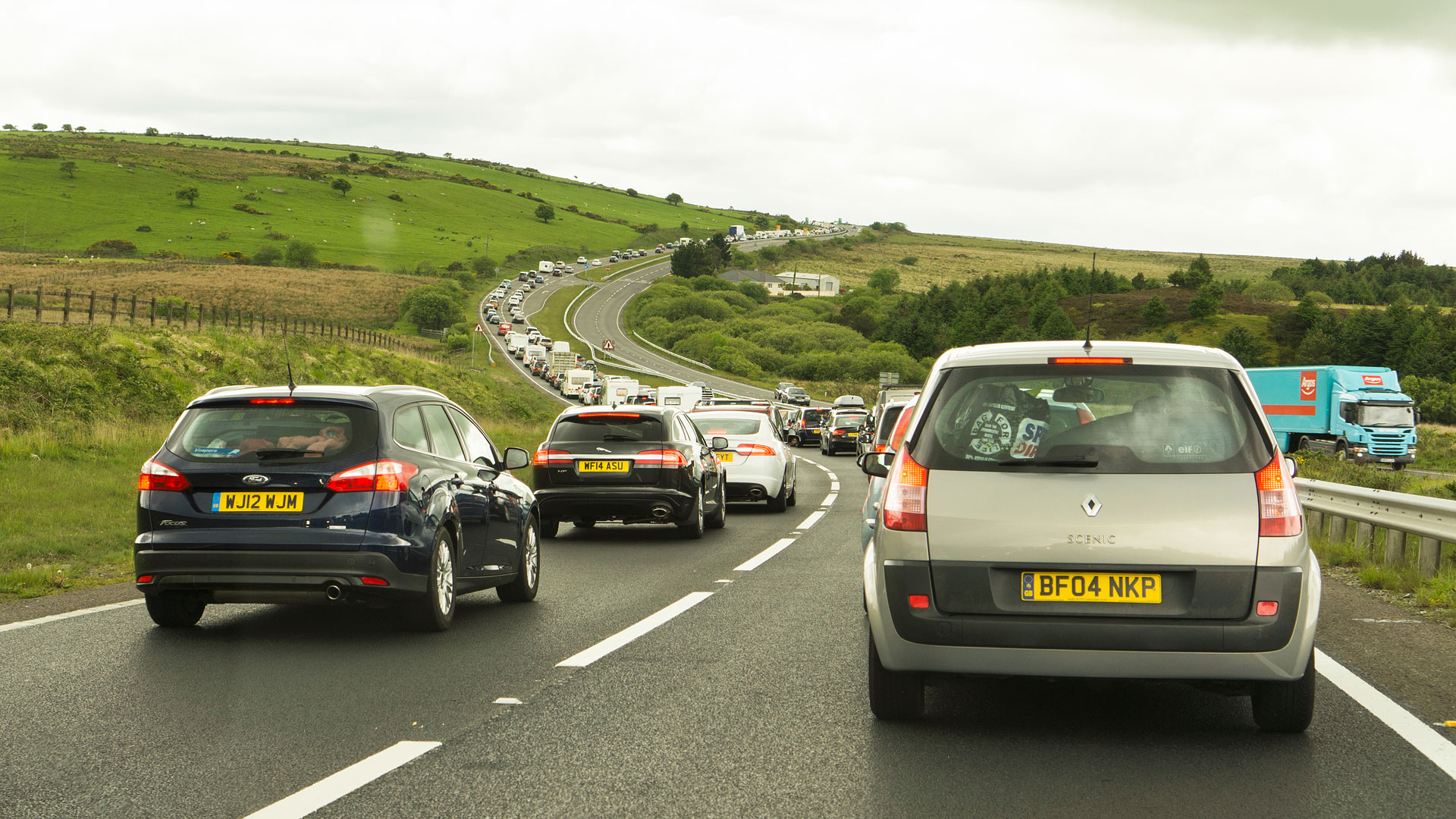
A report by Inrix shows the average British driver lost 80 hours due to traffic congestion in 2022. In London, which topped the league table as the most congested city in the world, this figure nearly doubled to 156 hours.
If you want to beat the jams – and who doesn’t, frankly? – there are a number of ways to find the latest traffic information. Before you set off and during your journey, here are some of the best ways to avoid a delay.
Satellite navigation
Whether you’re using a satellite navigation built into the car, an aftermarket unit or your smartphone, having access to live traffic information can be extremely useful.
Simply set the destination, then allow the GPS technology to work its magic. Some systems will recalculate the route on the fly, while others will alert you to the problem and provide a suggested alternative. You can make the call on whether or not it’s worth making a detour.
Waze

Waze is a community-based traffic and navigation app. In other words, the information it shares and receives is driven by its users. It collects information to provide other ‘Wazers’ with the most optimal route to their destination.
Users can also report to the community on traffic, accidents, speed cameras, police speed checks, blocked roads and weather conditions. Although it’s free to download and use the app, phone and carrier data rates obviously apply. An all-inclusive data package is recommended.
Live traffic information
In addition to the real-time traffic information provided by some satellite navigation systems, it’s also possible to find details of jams by going online.
In England, head to the Traffic England website to see a map showing real-time traffic information. It features a colour-coded road atlas, ranging from green for ‘moving freely’ to black for ‘not moving’. There’s also a chequered design for ‘closed’.

You can see details of the congestion, including the length and reason for the delay, along with when Highways England expects things to return to normal. Similar services are available in Scotland and Wales.
Radio
Although it might be tempting to listen to your favourite ‘Are we nearly there yet?’ playlist or The Motoring Podcast on the way to the beach, it can help to listen to the radio.
BBC Radio 2 and BBC Radio 5 Live provide traffic updates throughout the day, or you could listen to one of the BBC local radio stations. Alternatively, tune in to one of the many commercial radio stations across the country.
Roadworks information
If you like to plan ahead, grab five minutes to check for any roadworks on your proposed route to the coast. It might be worth finding an alternative route, especially during peak times, such as Friday evenings. Be warned: some major road improvement schemes are carried out at night, so travelling overnight doesn’t always pay off.
ALSO READ:
Speed limits, roads and the law: what you need to know
Some great tips curated here! Waze is pretty good in finding alternate routes and estimating route times.
Hi,
I have been impressed by the valuable information & insights you provide on your website.
I see the opportunity to collaborate on content that would benefit your readers.
I’d happily share our experience and previous work if you’re interested.
Let’s discuss topics you may still need to cover on your blog.
Thank you for your time, and I look forward to working together.